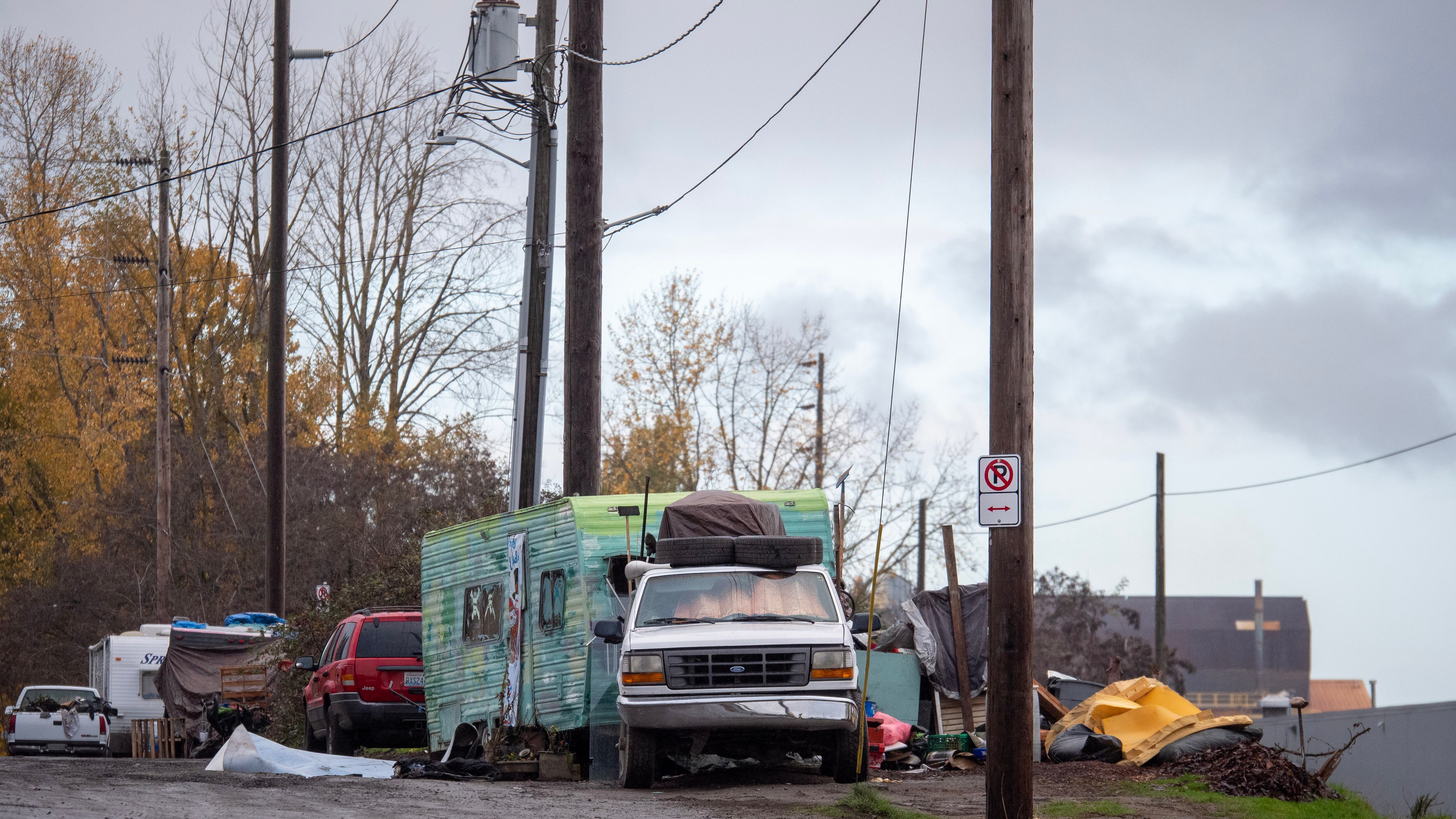Portland Mayor Ted Wheeler is weighing a proposal to streamline neighborhood association complaints about homeless camps, trash and graffiti directly to his office.
On Tuesday night, mayoral aide Sam Adams invited leaders of many of Portland’s neighborhood associations to discuss homelessness, trash and graffiti on a Zoom call. Around 40 joined.
He shared his plan to create a program whereby neighborhood associations and business districts would each provide one liaison to meet with city officials weekly to discuss homeless camps, trash and other concerns in their neighborhood. The liaisons would meet with city staff in clusters, determined by current neighborhood coalition boundaries.
The neighborhood liaisons, Adams says, would be paid a stipend for their work.
Adams’ team has drafted an emergency declaration and will present it to Mayor Wheeler for consideration early next week. Adams says the mayor will consult with city commissioners’ offices before issuing an emergency ordinance.
This would be the fourth emergency declaration Wheeler has put in place regarding homelessness in the past two months. However, if Wheeler does make an emergency declaration, the Portland City Council would still have to approve funding for it in the upcoming budget cycle.
Adams tells WW this new program would not be a crackdown on camping or lead to camp sweeps. Instead, he says, it’s about “all the other cleanup: street sweeping, graffiti, trash, dumps, stuff like that. Furniture, all that stuff,” Adams says. “It’s complementary but distinct.”
However, pileups of trash and camps are inextricably linked. Adams says the existing system for ranking and removing homeless camps would not change.
Four neighborhood association chairs who attended the meeting tell WW that certain details of the program still remain unclear: the parameters of the program, for instance, and how involved neighbors would be in the cleanups.
Ben Taylor, a board member of the Concordia Neighborhood Association, says he hopes the program will keep neighbors from taking matters into their own hands and doing more harm than good: “What the city does now is leave people to their own devices. We’re coming up with competing strategies, like people trying to clean up things themselves,” Taylor says. “People are reacting in different ways without leadership from the city.” (Taylor did not attend the Tuesday night meeting.)
In some ways, the proposed executive order would codify a practice that’s already occurring—with the twist of paying neighborhood residents for pointing out messes.
In seven hot spots across the city, Adams has been setting up meetings between neighborhood leaders and city officials for about a year now. The meetings have taken place downtown and in Old Town, Gateway, the Central Eastside and the Delta Park area, among others.
Downtown, where tensions between houseless Portlanders and business owners are perhaps at their worst, neighborhood leaders and city staff from bureaus that touch on homelessness, trash and graffiti have met for half an hour a week for the past six months.
Walter Weyler, chair of the Downtown Neighborhood Association, tells WW he’s been meeting with staffers from various city bureaus, including the Portland Police Bureau, for months to discuss particular camps and areas in downtown that he says need the most urgent attention. Those meetings, he says, have been led by Tom Miller, the mayor’s livability and sustainability director.
When Weyler reports a particular campsite, he says, it takes no more than two weeks for it to be swept.
The meetings with neighborhood leaders have been a trial, of sorts, for a program Adams and the mayor want to extend citywide.
Adams tells WW that camps reported at meetings have not skipped the line, nor will they when the new program launches.
Another notable feature of Adams’ plan: Neighborhood associations’ first stop for graffiti removal would be the mayor’s office, not the Office of Community & Civic Life, a troubled bureau largely responsible for graffiti cleanup and overseen for the past four years by the city’s two most progressive and controversial commissioners: first Chloe Eudaly and now Jo Ann Hardesty.
Eudaly worked to reduce the outsized influence of neighborhood associations at City Hall by weakening neighborhood watch programs and eliminating foot patrol programs. A common critique of neighborhood associations has been that they offer wealthy homeowners a stronger voice in how the city functions than other groups.
Adams’ plan signals an attempt by the mayor’s office to revive the inclusion of neighborhood groups in cleanup efforts—an increasingly visible and combustible issue in Portland.

